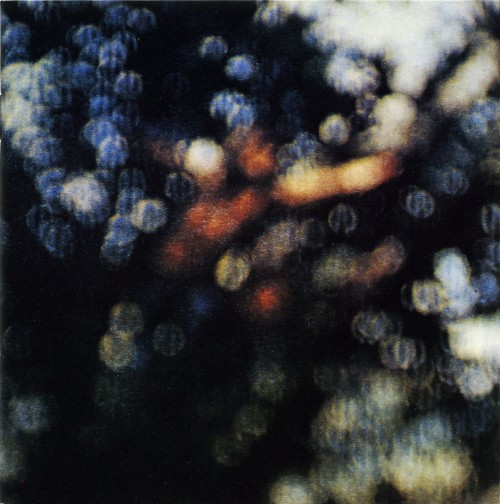In the wake of the solar eclipse that has captured people’s imaginations, and clogged up their social media feeds, Steven Rainey takes a bit of artistic licence and delves back into Pink Floyd’s history to rediscover an album that finds them revelling in the darkness caused by the blotting out of the sun.
Technically, Obscured by Clouds is a soundtrack album for the French film La Vallee, a reasonably obscure oddity that finds a woman going on a voyage of self-discovery in New Guinea. I haven’t seen it, and I’m betting you haven’t either (and if you have, fair play to you – in all honesty, it doesn’t look great). Crucially, having lived with this album for many years, I’ve never even been tempted to seek it out, so I guess we can assume that as a soundtrack, it fails miserably.
Where Obscured by Clouds does matter is in its place within Pink Floyd’s own chronology. Coming off the back of Meddle, it is the stepping stone that leads to the monolithic Dark Side of the Moon. And as such, it’s the last moment where Pink Floyd truly sound like a band. The epic concepts haven’t settled yet. The long song-suites aren’t entirely their thing, and for the most part, this just sounds like a bunch of guys playing some music. Y’know, like an ordinary band? And for a band that pushed themselves to continually be extraordinary, hearing them taking the foot off the gas pedal is more exciting than you would think.
Kicking off with the instrumental title track, a pulsing synth melds to the metronomic beat of Nick Mason. David Gilmour lets the guitar glide over the top, and the piece sounds more like something the emerging Krautrock bands would be doing, rather than the pastoral psychedelic rock that the Floyd were associated with. It drifts into ‘When You’re In’, preserving that same metronomic pulse, only with a little more balls than the band are usually known for. Both tracks are interesting, but not particularly substantial, and if they have some larger resonance on the cinema screen, it’s largely lost here.
‘Burning Bridges’ finds us on more familiar turf, a languid guitar and organ figure ushering in the album’s first ‘real’ song. To all extents and purposes, the song sounds like a cat stretching out in the sun, absorbing the heat and light. Showing how far they’d come from the childlike and occasionally nightmarish psychedelic visions of the Syd Barrett era, the song is gorgeous, like a fine wine, or a holiday in the south of France.
Gilmour’s ‘The Gold it’s in the…’ is almost boogie rock, and probably the closest Pink Floyd ever came to sounding like an American rock band. An unquestionable building block of their sound has been their Englishness, and subsequent albums would reinforce that, but on Obscured by Clouds, we hear what an American Pink Floyd might sound like. And for the most part, it ain’t too bad. The 6th form pretentiousness is absent, and the permeating air of desperation has been replaced by a laidback groove, akin to riding your Harley Davidson along the California coastline. ‘Wots…Uh the Deal’ almost sounds like The Eagles, it’s that divorced from what we know of the band. This is Pink Floyd on holiday, cutting loose, and chilling out.
However, the key track on the record is Roger Waters’ ‘Free Four’, a deceptively dark tune that points forward to the emotional desolation of the band’s later songs. Waters emerged from the shadow of Barrett to become the band’s lead songwriter and driving creative force, and fromDark Side onwards, he would absolutely dominate the band to the point where they began to consider themselves hired hands to facilitate his vision. Obscured by Clouds sees him as still one of the guys in the band, the bassist, and occasional vocalist. But whilst his voice hasn’t yet soured to the bitter caw it would become, the perceptible darkness of his words are there for all to see.
Whilst musically ‘Free Four’ sounds like an amiable shuffle, almost glam in its stomping rhythm, the song has a heart of darkness. “The memories of a man in his old age, are the deeds of a man in his prime, you shufflie in the gloom of the sickroom, and talk to yourself as you die,” sings Waters jauntily, providing one of the most depressing openings to a song released as a single. Rick Wright punctuates the up-tempo shuffle with an ominous blast of droning synth at the end of every phrase, and the sense of dislocation grows as the song goes on.
Waters’ songs are defined by the death of his father during the Second World War, the spectre of this lost man haunting his visions of a contemporary Britain where those ideals that were so expensively bought have been sacrificed in favour of corporate orthodoxy. In the midst of this slice of sunny rock, Waters unleashes a captivating portrait of a life lived in the shadow of loss: “You are the angel of death, and I am the dead man’s son.”
If this was Floyd’s holiday album, here was a portent of what happens when the trip is over. The next record would find the sun being eclipsed by the moon, but anyone who had really listened to ‘Free Four’ would know that Pink Floyd were no strangers to the darkness. Steven Rainey




